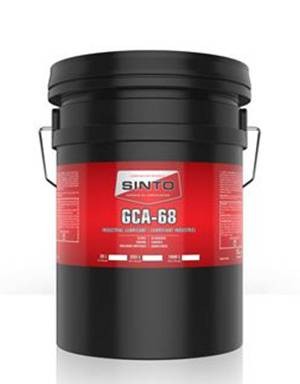Jun . 13, 2024 13:30 Back to list
Utilizing PVC pipes for plumbing purposes
Understanding UPVC Pipes A Versatile Solution for Modern Plumbing and Construction
Unplasticized Polyvinyl Chloride, commonly known as UPVC, has revolutionized the piping industry with its exceptional durability and cost-effectiveness. This material, in the form of pipes, has become a standard choice for various applications due to its unique properties and benefits.
UPVC pipes, derived from a highly refined form of PVC, are devoid of plasticizers, which makes them rigid and strong. They are primarily used in plumbing systems, drainage, and water supply lines, offering a reliable solution to both residential and commercial structures. Their popularity lies in their ability to withstand harsh weather conditions, chemical corrosion, and extreme temperatures, making them ideal for underground installations.
One of the primary advantages of UPVC pipes is their resistance to corrosion. Unlike metal pipes, they do not rust or corrode over time, ensuring a long lifespan and minimal maintenance. This feature not only enhances their durability but also prevents contamination of water, thus ensuring safe and clean water supply.
In addition to this, UPVC pipes are lightweight, which simplifies handling and installation. They can be easily cut and fitted, reducing labor costs and time spent on construction projects. Moreover, their thermal insulation properties help in preventing heat loss, making them efficient for hot water supply systems.
Another notable aspect of UPVC pipes is their acoustic insulation capabilities
Another notable aspect of UPVC pipes is their acoustic insulation capabilities Another notable aspect of UPVC pipes is their acoustic insulation capabilities
Another notable aspect of UPVC pipes is their acoustic insulation capabilities
Another notable aspect of UPVC pipes is their acoustic insulation capabilities
Another notable aspect of UPVC pipes is their acoustic insulation capabilities upvc pipe. They effectively reduce noise transmission, especially in high-rise buildings where plumbing noise can be a significant concern. This makes them an excellent choice for silent plumbing systems.
Furthermore, UPVC pipes are environmentally friendly. They are recyclable and do not pose any environmental hazards during disposal. This aligns with the current global push towards sustainable building practices.
Despite these advantages, it's essential to note that UPVC pipes have limitations too. They are not suitable for high-pressure applications and cannot withstand high-temperature fluids, restricting their use in specific industrial sectors.
In conclusion, UPVC pipes have significantly contributed to the advancement of modern plumbing and construction. Their robustness, versatility, and eco-friendliness make them a preferred choice, striking a balance between functionality and sustainability. As technology continues to evolve, so does the potential of UPVC pipes, promising even more innovative applications in the future.
upvc pipe. They effectively reduce noise transmission, especially in high-rise buildings where plumbing noise can be a significant concern. This makes them an excellent choice for silent plumbing systems.
Furthermore, UPVC pipes are environmentally friendly. They are recyclable and do not pose any environmental hazards during disposal. This aligns with the current global push towards sustainable building practices.
Despite these advantages, it's essential to note that UPVC pipes have limitations too. They are not suitable for high-pressure applications and cannot withstand high-temperature fluids, restricting their use in specific industrial sectors.
In conclusion, UPVC pipes have significantly contributed to the advancement of modern plumbing and construction. Their robustness, versatility, and eco-friendliness make them a preferred choice, striking a balance between functionality and sustainability. As technology continues to evolve, so does the potential of UPVC pipes, promising even more innovative applications in the future.
 Another notable aspect of UPVC pipes is their acoustic insulation capabilities
Another notable aspect of UPVC pipes is their acoustic insulation capabilities
Another notable aspect of UPVC pipes is their acoustic insulation capabilities
Another notable aspect of UPVC pipes is their acoustic insulation capabilities upvc pipe. They effectively reduce noise transmission, especially in high-rise buildings where plumbing noise can be a significant concern. This makes them an excellent choice for silent plumbing systems.
Furthermore, UPVC pipes are environmentally friendly. They are recyclable and do not pose any environmental hazards during disposal. This aligns with the current global push towards sustainable building practices.
Despite these advantages, it's essential to note that UPVC pipes have limitations too. They are not suitable for high-pressure applications and cannot withstand high-temperature fluids, restricting their use in specific industrial sectors.
In conclusion, UPVC pipes have significantly contributed to the advancement of modern plumbing and construction. Their robustness, versatility, and eco-friendliness make them a preferred choice, striking a balance between functionality and sustainability. As technology continues to evolve, so does the potential of UPVC pipes, promising even more innovative applications in the future.
upvc pipe. They effectively reduce noise transmission, especially in high-rise buildings where plumbing noise can be a significant concern. This makes them an excellent choice for silent plumbing systems.
Furthermore, UPVC pipes are environmentally friendly. They are recyclable and do not pose any environmental hazards during disposal. This aligns with the current global push towards sustainable building practices.
Despite these advantages, it's essential to note that UPVC pipes have limitations too. They are not suitable for high-pressure applications and cannot withstand high-temperature fluids, restricting their use in specific industrial sectors.
In conclusion, UPVC pipes have significantly contributed to the advancement of modern plumbing and construction. Their robustness, versatility, and eco-friendliness make them a preferred choice, striking a balance between functionality and sustainability. As technology continues to evolve, so does the potential of UPVC pipes, promising even more innovative applications in the future. Share:
Latest news
-
HDPE Steel Belt Reinforced Spiral Corrugated Pipe | High Strength
NewsAug.17,2025
-
HDPE Pipe Fittings: Durable, Leak-Proof Solutions
NewsAug.16,2025
-
Premium CPVC Sheet: High-Temp & Chemical Resistant Solutions
NewsAug.15,2025
-
Durable PPR Pipe for Hot & Cold Water Systems - Easy Install
NewsAug.14,2025
-
Durable HDPE Sheet | Versatile & Impact-Resistant Plastic
NewsAug.13,2025
-
Premium PVC Soft Sheets: Clear, Flexible & Durable
NewsAug.12,2025

